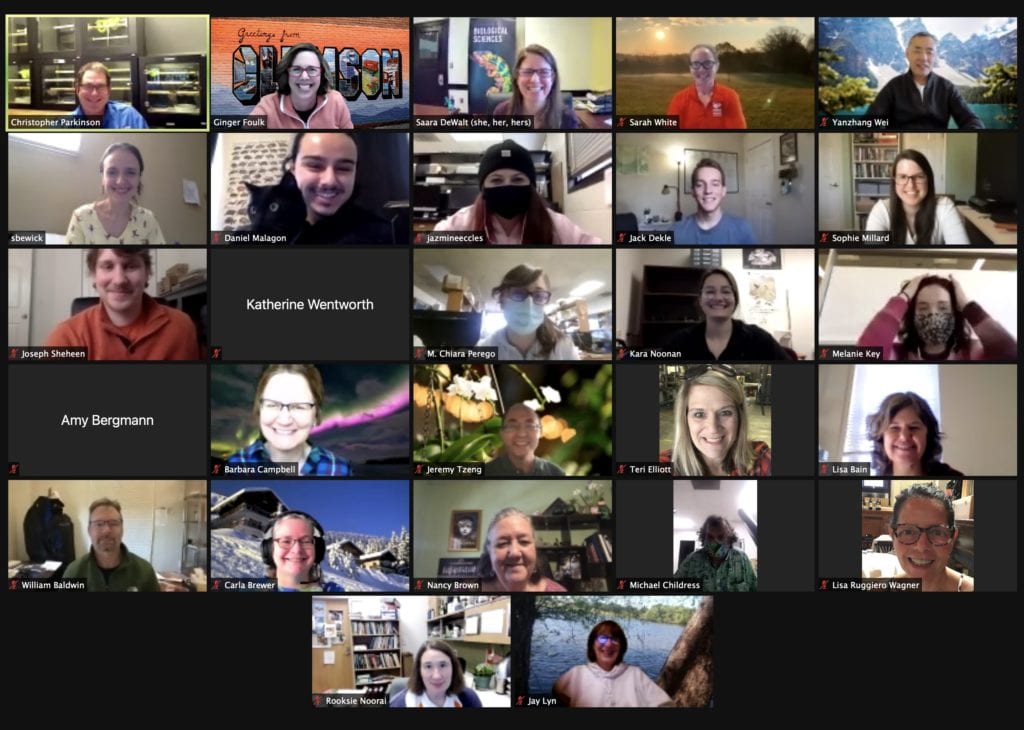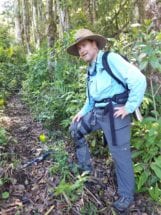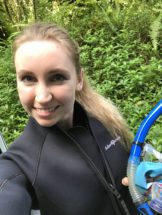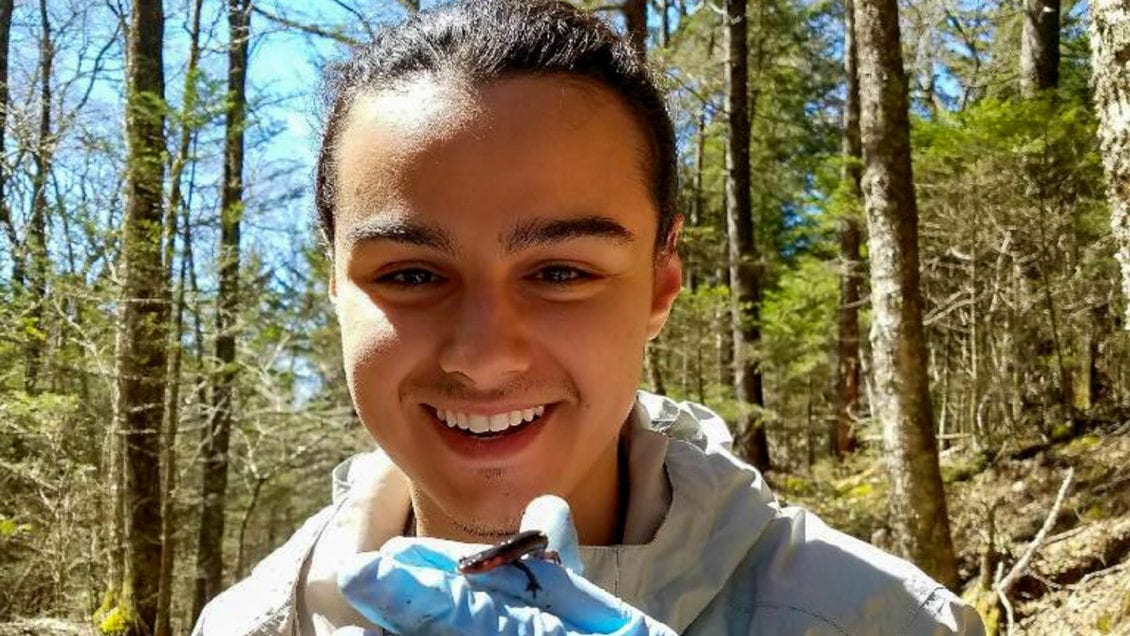Clemson University biological sciences professor Chris Parkinson’s professional development course gives graduate students a unique and insightful look into grant writing.
Students enrolled in the semester-long class write a request for grant proposals and solicit applications from graduate students in biological sciences, environmental toxicology and microbiology. Students enrolled in the class convene a review panel, guided by additional faculty, to evaluate and rank the proposals based on innovation, hypothesis testing, the project’s feasibility, and potential impact on the applicant’s research program.
The course expands graduate research opportunities because the top-ranked grants receive funding through the Department of Biological Sciences, the College of Science, the Division of Research and private donations.
Eight students received funding of up to $1,500 for the 2020 grant cycle and were recognized during a recent virtual awards reception.

They are:
- Jack Dekle, Master of Science student in environmental toxicology, for “Nutrient dynamics and remediation potential of floating treatment wetlands over winter.” Advisor: Sarah White.
- Jazmine Eccles, Master of Science student in biological sciences, for “Effects of lipid metabolites on lipid accumulation in adipocytes and hepatocytes, potentially contributing to obesity and fatty liver disease. Advisor: William Baldwin.
- Melanie Key, Ph.D. student in microbiology, “Identification of heme-responding elF2a kinase(s) in Toxoplasma gondii.” Advisor: Zhicheng Dou.
- Daniel Malagon, Ph.D. student in biological sciences, for “Nested metapopulations.” Advisor: Sharon Bewick.
- Sophie Millard, Ph.D. student in microbiology, for “Host-microbe interactions that mediate recovery from recurrent Clostridium difficile infection.” Advisor: Anna Seekatz.
- Kara Noonan, Master of Science student in biological sciences, for “The role of coral genome on the progression and transmission success of coral disease.” Advisor: Michael Childress.
- Chiara Perego, Ph.D. student in biological sciences for “Arsenic impairs stem cell differentiation via the Hippo signaling pathway.” Advisor: Lisa Bain.
- Joseph Sheheen, Master of Science student in biological sciences, for “Investigating regulatory mechanisms of vertebrate secondary body axis formation.” Advisor: Susan Chapman
While teaching students how to navigate the grant process and expanding graduate research opportunities are important aspects of the course, they are not Parkinson’s only goal.
This class is so much more than grant writing. It is designed to help students be successful in graduate school and beyond, whether that’s in academia or industry,” Parkinson said.
Traditionally, graduate students receive solid training in research and teaching. However, there are other essential skills needed to succeed in academia or industry.
“These skills are often learned ‘on the fly,’ ” said Brandon Peoples, an assistant professor of fisheries ecology in Clemson’s Department of Forestry and Environmental Conservation who serves on the BSPDC-GIAR review panel. “This course allows students to improve their grant writing skills and ask questions they might not otherwise be able to ask. Learning about how the grant process works before graduating can help students make better decisions about their future career choices.”
Crucial skill
Grant writing, report writing or drafting a bid is crucial for scientists working in academia or industry.

“You can do phenomenal science on a shoestring budget. You can design experiments that don’t cost a lot of money. All of that is true,” said Parkinson, who holds a dual appointment in College of Science’s Department of Biological Sciences and the College of Agriculture, Forestry and Life Science’s Department of Forestry and Environmental Conservation. “However, you can do more science and larger experiments if you have funding. For principal investigators, being able to support graduate students on research fellowships and hire post-doctoral researchers builds that infrastructure of doing science at a larger scale. Teaching our graduate students how to acquire grant money for their research is imperative because they’re going to be doing this writing for the rest of their careers.”
Daniel Malagon, a second-year Ph.D. student in biological sciences, took the course during his first semester at Clemson.
Good decision
“It was one of the best decisions I made that semester,” said Malagon, who hails from Knoxville, Tennessee, where he earned an undergraduate degree from the University of Tennessee. “Moving from an undergrad program to a graduate program is scary. We’re still students, but there’s a different dynamic. Going from an undergrad to a Ph.D. student is a big jump. The class boosts your confidence.”
During the class, enrollees learn how to interact with faculty as graduate students. They also delve into how to deal with imposter syndrome; learn time management, work-life balance, and how to communicate with other scientists at conferences; discuss research publications and authorship issues, research ethics, curriculum vitae building, how to communicate their research to non-scientists, and academic and non-academic careers in science.
Malagon received one of the 2020 BSPDC-GIAR grants to study how salamander microbiomes have changed over time. Reviewing proposals when he was part of the course helped him be successful when it was time to submit his own.
“Writing grants is going to be a part of our lives. It’s going to be part of how we determine if we’re successful,” he said. “Getting a behind-the-scenes look at what it’s like to review a grant helps one learn how to structure one’s grant.”
External funding
Many of the course’s past grant recipients have secured external funding and have published their research.

Amanda McClung, a second-year Ph.D. student in biological sciences who received a BSPDC-GIAR grant, also secured three external grants for her research on Hawaiian waterfall climbing gobies, which are fishes with suction cups on their bellies. Her recently published study found that the fish found at the highest waterfalls had the best suction cups and can stick to challenging surfaces.
“Getting someone’s perspective from outside my field made a difference in how I present my research,” she said.
Christopher Saski, an associate professor in Plant and Environmental Sciences, is another faculty member who has been a reviewer on the BSPDC-GIAR panel. He said his early grant-writing career would have benefitted if a similar course had been available when he started graduate school.
“I would have had a better grasp on how review panels work and, probably most importantly, how to handle criticism constructively,” he said.
“Having been on the panel for three years now, I’ve seen a clear improvement in the quality of proposals students are submitting,” Peoples said. “Over time, courses like this affect the culture and quality of experience graduate students get at Clemson.”
The College of Science pursues excellence in scientific discovery, learning and engagement that is both locally relevant and globally impactful. The life, physical and mathematical sciences converge to tackle some of tomorrow’s scientific challenges, and our faculty are preparing the next generation of leading scientists. The College of Science offers high-impact transformational experiences such as research, internships and study abroad to help prepare our graduates for top industries, graduate programs and health professions. clemson.edu/science
Get in touch and we will connect you with the author or another expert.
Or email us at news@clemson.edu

